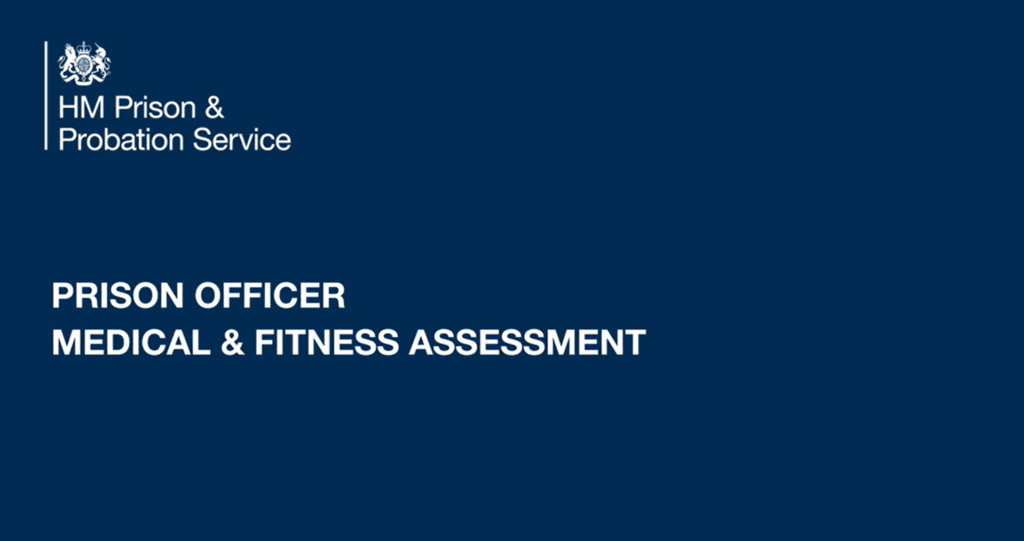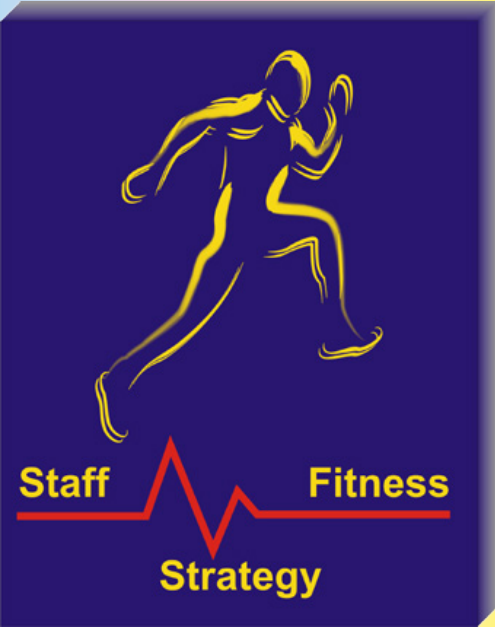Assessment Centre
If you are successful in the first stages of the recruitment process, you will be invited to attend a full day assessment centre at Newbold Revel. It will be a challenging day and will include a written exercise, role play, interview and a medical and fitness assessment.
There will be short breaks in between each assessment, but not during assessments. There will also be a lunchbreak where you will have the opportunity to ask questions to existing senior prison leaders.
Please watch the two videos below to learn what to expect and how to prepare for your assessment centre. Additional information is provided on this page to support you.
What to expect at your assessment centre
How to prepare for your assessment centre
Assessments
During the assessment centre we test to see if you have the abilities, behaviours and strengths to be a senior prison leader. The assessments are designed to reflect the reality of being a senior prison leader.
Written Exercise
-
We test your written English skills as you will be required to write reports and communicate in writing with staff, and these need to be clear and concise. Reports written by senior prison leaders could be used in a court of law and must be of a professional standard. We will also assess your numerical ability as senior prison leaders will be responsible for accurate management of their departmental budget(s).
-
The written exercise includes two tasks.
- Task 1: You will need to consider a line manager related scenario you could encounter when working as a senior prison leader. You need to consider the information and provide your response in a written format for how you will engage with your staff member.
- Task 2: You will need to review annual budget information and make recommendations about what you think the future budget provision should be for your prison area.
You will be given 60 minutes to complete the exercise and type your responses.
-
We will assess your responses against the following behaviours:
- Communicating and Influencing
- Making Effective Decisions
We will also assess you against the following abilities:
- Written English
- Numerical and Data Analysis
It is important for you to familiarise yourself with the Assessment Criteria section of this page, to understand more about the behaviour and ability areas being assessed.
Role Play
-
As a senior prison leader, you will need to use your communication skills in a variety of challenging situations. In the role play you’ll be asked to meet with a staff member you manage to discuss a recent prison inspection. You’ll be given some background information to help you prepare.
-
You will have 25 minutes to prepare for your role play using the information provided to you. Following this you’ll undertake the role play with an actor. This will last up to 20 minutes. You will take on the role of a senior prison leader (Head of Function) who is interacting with a staff member you manage (a Custodial Manager, played by the actor). The role play has been designed to closely replicate the kind of interaction you may encounter in the role.
We’re looking for you to respond to the issues that arise in a way that seems most natural and appropriate to you. You are not expected to understand all the processes and activities involved in being a senior prison leader or respond in the same way that an experienced prison leader would.
During the assessment, treat the role play exactly as you would a real-life situation. Be yourself; we want to measure your natural responses and not what you think we’re looking for.
-
We will assess your responses against the following behaviours:
- Changing and Improving
- Leadership
- Seeing the Big Picture
- Developing Self and Others
We will also assess you against the following ability:
- Spoken English
It is important for you to familiarise yourself with the Assessment Criteria section of this page, to understand more about the behaviour and ability areas being assessed.
Interview
-
We interview candidates to assess spoken English skills and to allow you to demonstrate your strengths and behaviours. Communication and your ability to engage with people is a key component of being a senior prison leader.
-
The interview is a blended interview that will cover strengths-based and behaviour-based questions. It will last up to 1 hour. There will be 5 strengths assessed during the interview and you will be asked one question on each strength. There will be 6 behaviours assessed during the interview and you may be asked follow-up questions so the assessors can gather enough evidence.
When responding to each question, you should focus on a specific example and go into as much detail as possible. You can use either personal, educational, or professional examples.
You will be provided with 3 minutes to respond to each strength question and 5 minutes to respond to each behaviour question.
-
Preparing for strength questions
Strengths are the things we do regularly, do well and that motivate us. Before your interview, you may find it helpful to consider why you would like to become a senior prison leader and reflect upon your strengths and those that align with being a senior leader. Some people find it difficult to identify their own strengths. If you feel this way, you could consider talking to family or friends about what strengths they feel you have.
Strengths-based questions may seem different to questions you have had in the past (e.g., behavioural, or competency-based questions). They are designed to assess your natural preferences, so the specific strengths you will be asked about during the interview are not disclosed. The questions are designed to be as clear as possible and can be interpreted exactly as they are said (there are no hidden meanings). To help familiarise yourself with the style of these questions, a couple of examples have been outlined below. These examples do not represent the strengths that will be included in your interview.
Examples of strength questions:
- How do you feel when you are asked to support people through change? Why is that?
- How true of you is this statement? I always treat people fairly.
You can read the full range of strengths under the Assessment Criteria section of this page.
Preparing for behaviour questions
Behaviours are the actions and activities that people do which result in effective performance in a job. Before your interview, you should familiarise yourself with the 6 behaviours you will be asked to demonstrate during the interview, so you can prepare your most relevant and best examples.
You are able to bring any notes into the interview to support you for the behaviour-based questions.
The behaviours assessed during the interview are:
- Communicating and Influencing
- Changing and Improving
- Developing Self and Others
- Leadership
- Making Effective Decisions
- Seeing the Big Picture
You should plan the structure of your responses for the behaviours assessed. A common approach that you might consider using is the ‘STAR method’:
- Situation – the situation you had to deal with
- Task – the task you needed to complete
- Action – the action you took to complete the task
- Result – what happened as a result of your action and what you learned from the experience
Once the assessor has asked you a behaviour question, you will be provided with some time to think about how you want to respond. This is so you can think of your most relevant and best example for each question without the pressure of needing to respond straight away.
To help familiarise yourself with the style of these questions, an example has been outlined below. This does not represent a question that will be included in your interview.
Example of a behaviour question:
- Tell me about a time when you had to create clear plans and set priorities to meet the needs of a customer?
We may then ask probing questions to explore your response further, depending on the detail provided and whether you have time remaining for this question.
We will also assess you against the following ability:
- Spoken English
It is important for you to familiarise yourself with the Assessment Criteria section of this page, to understand more about the behaviour and ability areas being assessed.
Assessment Criteria
During the assessment centre you will be assessed on the behaviours, abilities and strengths outlined below.
The behaviour definitions are provided below. To understand more about the level of demonstration we are expecting during the assessment centre, please review the examples provided at the: Higher Executive Officer (HEO) and Senior Executive Officer (SEO) grades
Behaviours
-
Communicate purpose and direction with clarity, integrity and enthusiasm. Respect the needs, responses and opinions of others.
-
Seek out opportunities to create effective change and suggest innovative ideas for improvement. Review ways of working, including seeking and providing feedback.
-
Focus on continuous learning and development for self, others and the organisation as a whole.
-
Show pride and passion for public service. Create and engage others in delivering a shared vision. Value difference, diversity and inclusion, ensuring fairness and opportunity for all.
-
Use evidence and knowledge to support accurate, expert decisions and advice. Carefully consider alternative options, implications, and risks of decisions.
-
Understand how your role fits with and supports organisational objectives. Recognise the wider Civil Service priorities and ensure work is in the national interest.
Abilities and Strengths
-
We’re looking to find out what motivates and energises you. We want to see what your natural strengths are and what interests you.
You can access the full range of strengths and their definitions here: Success Profiles: Civil Service Strengths Dictionary
-
Spoken and Written English
You understand English to a high standard. This allows you to clearly share information and explanations in a written format. You use accurate and appropriate language suitable for a professional workplace.
You understand English to a high standard. This allows you to ask logical questions and clearly share information and explanations, in a spoken format. You speak in a clear, concise, and confident manner. You can adapt your communication for different purposes. You use accurate and appropriate language suitable for a professional workplace.
Numerical and Data Analysis
You can perform basic arithmetic (e.g., addition, subtraction, multiplication). You can analyse and present data in different formats (e.g., tables and graphs). You can apply numerical skills to organisational contexts (e.g., budgets).
You can analyse data to support decision-making. You can apply analytical techniques to identify data trends and insights.
Medical
The purpose of the medical is to assess your general level of health. We’ll be looking at your weight, blood pressure, eyesight and hearing, so that we can make informed decision about whether you’re ready to complete the fitness test. Working as a prison officer can be physically demanding and we want to make sure that you’ll be comfortable in the role.
If you carry an inhaler, wear glasses, use hearing aids or are on any prescription medication, please make sure these are in date and bring these with you.
To meet the visual standards for the role, you must meet certain strict criteria:
- Have a minimum uncorrected distance visual acuity of 6/36 or better with both eyes open.
- With corrective lenses, your visual acuity must be at least 6/12 with both eyes open.
- If correction is needed to reach this standard, your uncorrected vision must still be at least 6/36 with both eyes open.
This assessment is conducted using a Keystone machine, or a Snellen test if the Keystone is unavailable. If the standard isn’t met during screening, you’ll be advised to see your optician and submit a vision report at a later date.
You’ll need to be able to hear a normal conversation at a 10 feet (3m) distance, without the use of hearing aids. This will be determined using the whisper test.
On the day, your blood pressure will need to be recorded within a safe range, so that you can take part in the fitness test.
Standard range
If your BP is between 90/60 mmHg and 140/90 mmHg, the result is satisfactory, you can proceed to the fitness test.
Outside the range
- If your BP is below 90/60 mmHg or above 160/100 mmHg, further checks are needed.
- You’ll have three additional readings, taken from both arms, to confirm whether your BP falls within the broader range of 90/60 mmHg to 160/100 mmHg.
- If those readings are within range, you can continue to the fitness test.
- If they remain outside the range, it won’t be safe to proceed with the test on that day.
If further action is needed
- If you’re unable to complete the test due to high or low BP readings, you’ll be advised to visit your GP.
- Time will be allowed within the recruitment process for you to complete this step and resubmit your medical clearance.
Your BMI is checked and ideally should be 30 or less. On a specific basis, those with a BMI between 31-35 may also be considered fit. This is more likely to be the case if you are heavily muscled, with no movement restrictions, or underlying health issues.
If your BMI is over 35, medical staff will consider how you should progress on the day.
We understand that everyone has different body types. So, your BMI may not preclude you from testing.
After you’ve passed all elements of the medical assessments, you’ll be approved to proceed to the fitness test stage. This will take place on the same day.
The fitness assessment will involve:
- Grip test – 25kg pressure pass mark on both hands
- Multi-stage fitness test (bleep test) – pass mark
reaching level 5.4 on a 15-metre test running for 3 minutes and 35 seconds - Shield hold – 1 minute
- Speed and agility completion under 34 seconds
Fitness
Please listen or watch with subtitles the video to find out what to expect from the medical and fitness assessments. This video has been designed for recruiting prison officers, but you’ll be undergoing the same process.
How to prepare
Base your training around maintaining a high intensity of exercise for a short period of time, not a low intensity of exercise for a long period of time. A short run will be better training than a long walk. We recommend building up your running ability, as well stretching frequently.
Fitness Guide
Please see the below guide for further information on how best to prepare for your fitness assessment.
Assessment Centre Checklist
Please ensure you bring with you the following documents to your assessment centre. When you arrive at the assessment centre, you’ll be asked for three identification documents:
- Document 1: document must include your date of birth and a photograph – for example, a driving license or passport.
- Document 2: document must prove your address – this could be a bank statement or utility bill (not a mobile phone bill), date stamped within the last three months.
- Document 3: The third must prove your right to work in the UK, either a passport or biometric residence permit.
Other information to ensure you have considered in advance:
- Ensure you have packed suitable footwear and clothing for the fitness test, as well as a towel and toiletries for a shower afterwards.
- You may wish to consider your footwear for the assessment centre as you will be moving between different assessment rooms across the site.
- Please ensure you are familiar with your travel arrangements and have arranged this in advance. Newbold Revel Training College is a remote location.
- The 85A bus stops nearby but please check times and frequency before travel.
- You will keep your bag with you during the day and will be asked to ensure your devices are off before each assessment.
- Please prepare any questions you would like to ask in advance. You will have the opportunity to talk to senior prison leaders on the day.
- Try to ensure you are feeling rested as it will be a challenging assessment day.
- You will be provided with lunch and water throughout your assessment day.
- If you have requested reasonable adjustments as part of the recruitment process for the assessment centre, these will be provided. If you have any questions on the day about your adjustments, please discuss these with the Assessment Centre Host or your assessor.
If however, you have any questions before the assessment centre please contact T: 0345 241 5358 Email: [email protected]
The assessment centre location
Newbold Revel Training College, Rugby CV23 0TH
Please note that Newbold Revel Training college is a remote location, so it is best to arrange your travel in advance.
Rugby train station is the nearest train station, around 8 miles away. Trains to Rugby run frequently from London Euston, Birmingham, and other major hubs via Avanti West Coast.
The 85A bus stops nearby but please check times and frequency before travel.



